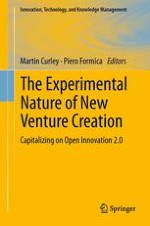2013 | OriginalPaper | Buchkapitel
11. Experimenting Social Constructivist Approach in Entrepreneurial Process-Based Training: Cases in Social, Creative and Technology Entrepreneurship
verfasst von : Tõnis Mets, Mervi Raudsaar, Kärt Summatavet
Erschienen in: The Experimental Nature of New Venture Creation
Aktivieren Sie unsere intelligente Suche, um passende Fachinhalte oder Patente zu finden.
Wählen Sie Textabschnitte aus um mit Künstlicher Intelligenz passenden Patente zu finden. powered by
Markieren Sie Textabschnitte, um KI-gestützt weitere passende Inhalte zu finden. powered by
